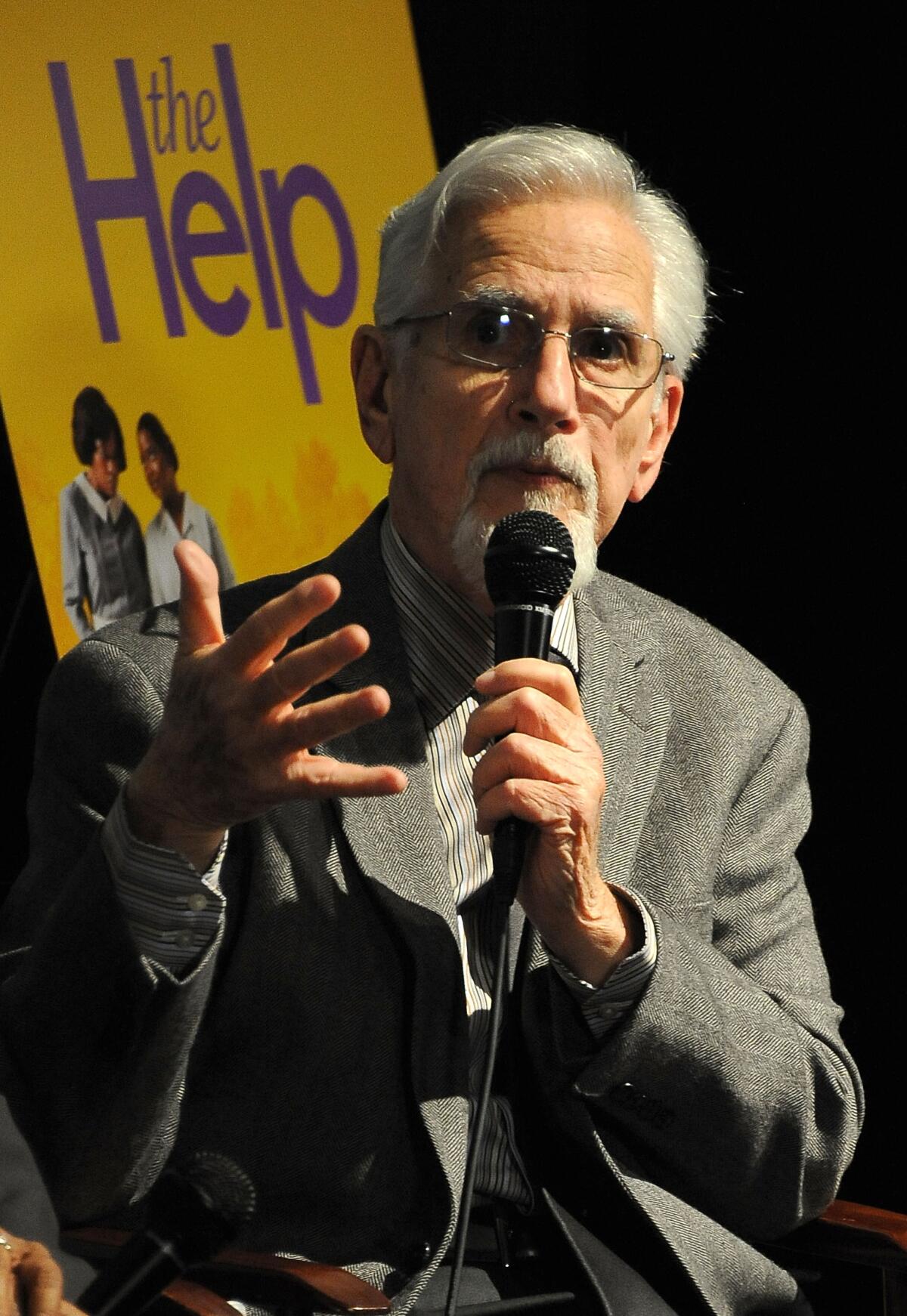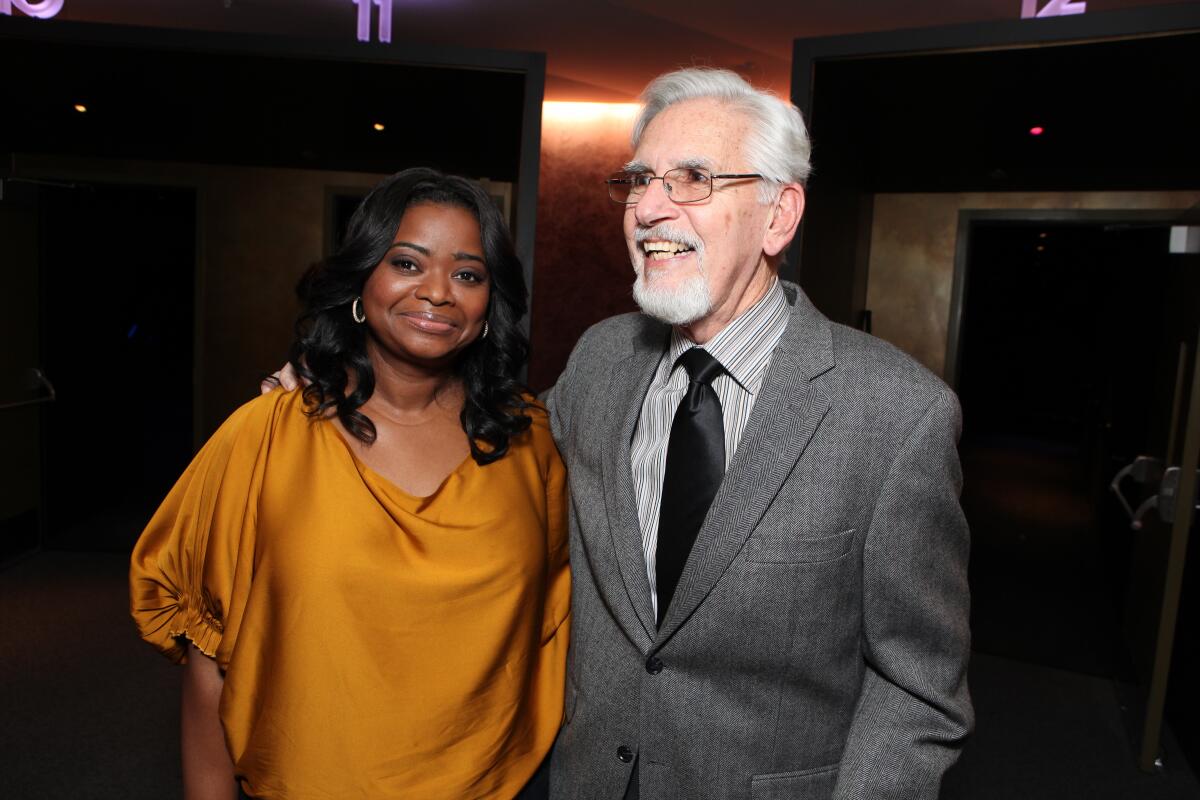Allen Freehling, L.A. rabbi who fought for human rights and the marginalized, dies at 88

- Share via
For Rabbi Allen Freehling, faith was most fruitful through action. Lots of it.
Freehling, who headed Brentwood’s University Synagogue through its revival, was active in both religious and civic circles in Los Angeles for decades and counseled congregants over his nearly 60-year rabbinical career, died on Jan. 6. He was 88.
Born in Chicago, Freehling was raised in Miami, enduring “a painful childhood,” according to Rabbi Steven Jacobs, a longtime friend. Freehling graduated from the University of Miami and then tinkered in different jobs, trying his hand at furniture manufacturing with his father and public relations. He also filled nonrabbinical leadership roles at two local temples.
As the civil rights movement roiled the world around him, Freehling decided the best way to get involved was to become a rabbi in the progressive Reform practice, “dedicated to radical freedom,” as Jacobs put it. From almost the moment the two met at Hebrew Union College, Freehling and Jacobs bonded over their passion for justice.
“Without exactly stating it, we knew our passions and we knew that you could be generously angry with the world, like the prophets,” Jacobs said. “We found that commonality.”
As a newly minted rabbi, Freehling served for five years at a temple in Ohio with his first wife and three children before moving west and settling in at Los Angeles’ University Synagogue — then a struggling, nearly bankrupt congregation of fewer than 250.
“The force of his commitment to social justice really matched the time in the early ’70s and began to really grow the congregation — and really not only to grow it, but to excite it,” L.A. County Supervisor Sheila Kuehl said.
Freehling fueled his spirituality with fierce activism, eventually growing the synagogue to 1,000 members strong and an annual income of more than $2 million, according to a booklet celebrating his retirement. He would also later help found a preschool at the synagogue.
When the AIDS epidemic swept across the country in the 1980s, Freehling founded an interfaith council with an Episcopal bishop and a Roman Catholic archbishop, said Melanie Rhalter, a congregant and close friend. His advocacy work landed him the role of founding chair of the Los Angeles Commission on AIDS, and the first chairman of what was then known as the International Assn. of Physicians in AIDS Care.
In addition to his formal roles, Freehling sought to stir change through conversation. Freehling facilitated a regular dialogue between Muslims and Jews, bridging divides.
A pinnacle in his career came in 1988, when he hosted a meet-and-greet for local Jewish leaders and then-presidential candidate the Rev. Jesse Jackson, who had angered Jews by using an anti-Semitic slur during his campaign.
“Taking our cue from the prophet Isaiah, who taught: ‘Come now, and let us reason together,’ I believe that the Jewish community leadership of Los Angeles and Jesse Jackson must attempt to resolve their particular ‘J’ problems under the best of circumstances,” Freehling wrote in a Times op-ed, proposing a private meeting between Jackson and Jewish leaders.
Rhalter recalled a “cacophony” at a local hotel where the meeting was held. Protestors stood outside, banging on the windows of a room where the media members huddled. Upstairs, away from the chaos, Freehling, Jackson and a variety of faith leaders met for a private conversation — no recording devices allowed.
“It meant that the dialogue could be candid and open and private, with the goal of healing — not people grabbing headlines or sound bites and being confrontational,” Rhalter said.
Two years later, Freehling and Jackson co-officiated the funeral for Sammy Davis Jr.
Freehling’s stature in the Jewish community earned him various such honors — and a fat Rolodex. He bar mitzvahed David Schwimmer, who would later play Ross on the sitcom “Friends.” Schwimmer introduced Elie Wiesel, Nobel Peace Prize winner and survivor of Nazi concentration camps, at the dinner celebrating Freehling’s 2002 retirement from 30 years at University Synagogue.

In his typical tireless fashion, Freehling took the opportunity of retirement to launch another career, this time as executive director of the city of Los Angeles’ Human Relations Commission. He led a team tasked with forging and strengthening relationships in troubled parts of the city.
Freehling took on one more job, deputy chief of staff for then-Councilman Tony Cárdenas, before finally embracing retirement and moving to New Orleans in 2011.
He and his wife, Lori, loved the culture, food and music of their new home. They traveled to Havana and Paris, and went scuba diving in Hawaii. They watched the New Orleans Saints from home and cheered on the Dodgers from afar. He introduced her to classical music and opera; she enlightened him on jazz and rock.
Freehling is survived by his wife, children Shira and Jonathan, six grandchildren and four great-grandchildren. He was predeceased by another son, David.
More to Read
Start your day right
Sign up for Essential California for the L.A. Times biggest news, features and recommendations in your inbox six days a week.
You may occasionally receive promotional content from the Los Angeles Times.







